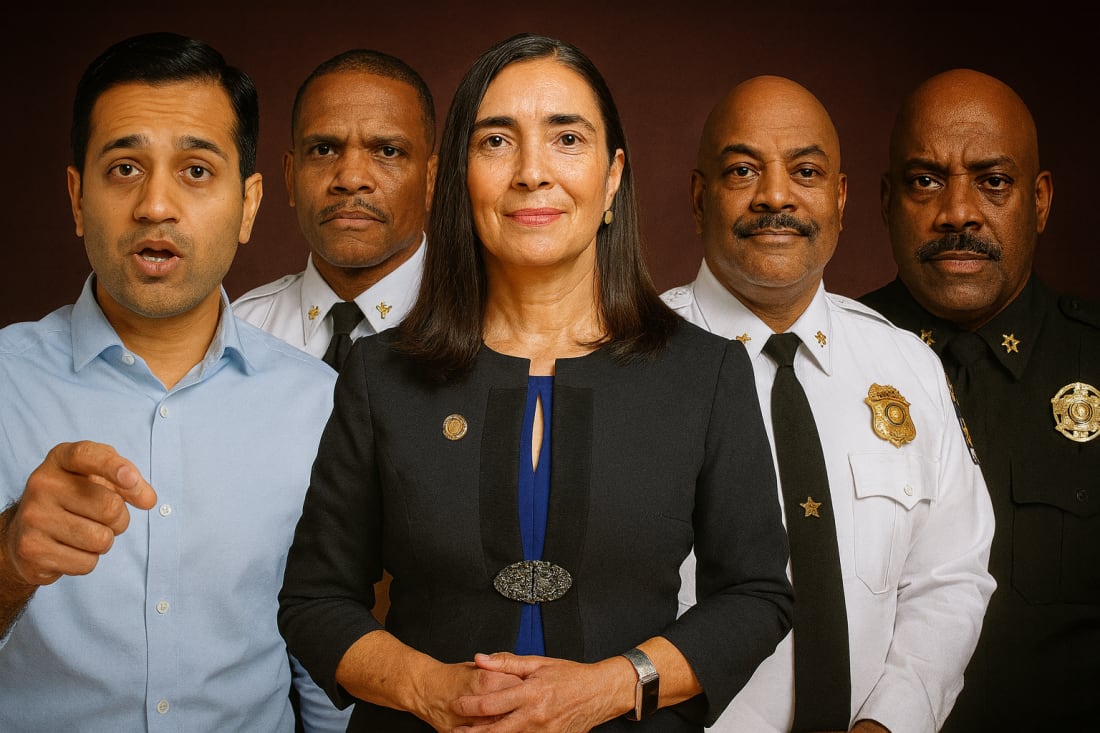|
 |
Roy Cooper’s Equity Experiment: How North Carolina Reimagined Policing—And Unleashed a Crime Wave
The former governor's hand-picked “equity” advisers, radical reforms, and rising crime
Part I of “Roy Cooper’s Equity Experiment”
In the summer of 2020, with BLM protesters tearing down statues and looting downtown businesses in the. name of “equity,” then North Carolina Governor Roy Cooper launched the Task Force for Racial Equity in Criminal Justice.
Cooper’s executive order 145 promised to “eliminate racial disparities” and “reimagine public safety.” But the product was not a moderate reform plan; it was a roadmap for dismantling the state’s traditional justice system.
Cooper placed the effort in the hands of Attorney General Josh Stein and Justice Anita Earls, two ideological allies. They staffed the pannel with progressive sheriffs, politicians, and activists not to merely study policing. It rewrote and dismantled it.
By late 2020, the Task Force’s final report sounded less like reform and more like a manifesto: end the death penalty, eliminate cash bail, cut prison populations, reframe violence as a public-health issue.
Anita Earls: The Activist in Robes
Before joining the Supreme Court, Earls founded the Southern Coalition for Social Justice (SCSJ)—a Soros-funded advocacy group dedicated to ending mass incarceration, abolishing the death penalty, eliminating cash bail, and removing police from schools.
When Cooper made her Task Force co-chair, those same goals became state policy. SCSJ’s platform—to empty jails, end executions, and replace officers with counselors—appeared nearly verbatim in the Task Force’s 2020 final report.
Now, as a sitting justice, Earls still wields the activist’s megaphone. According to the Carolina Journal, she has openly accused her colleagues and the entire court system of racial bias, ignoring warnings from the state’s Judicial Standards Commission.
Critics say she’s turned North Carolina’s highest court into a stage for ideology. Her allies call it bravery. Either way, the wall between advocacy and adjudication is gone—and the consequences ripple through every courtroom and jail in the state.
Mujtaba Mohammed: The Politician of Protest
State Senator Mujtaba Mohammed, another of Cooper’s appointees, brought the language of protest into legislative policy. During the George Floyd demonstrations, he eulogized Floyd on the Senate floor with the tag #BlackLivesMatter.
On the Task Force, Mohammed became a vocal proponent of “community-based alternatives” to incarceration, arguing that crime stems from trauma, not choice. Yet when the Senate later voted to condemn Hamas’s terrorist attacks on Israeli civilians, he walked out—proof that his moral outrage is selective.
For Cooper, Mohammed offered a reliable ideological echo. Symbolism was the point.
The Enforcers Who Wouldn’t Enforce
Then there were Cooper’s lawmen, officially charged with protecting their cities, who chose reform over enforcement.
Quentin Miller of Asheville
In Buncombe County, Sheriff Quentin Miller rejected ICE detainers, releasing undocumented offenders without notice. He claimed it built “trust.” The result was carnage.
Asheville recorded 13 homicides in 2024, the most in city history, surpassing 2022’s previous record of 12 (WLOS). Property crimes and open drug use now plague downtown. Locals call it “the Wild West of North Carolina.”
“We’re focused on fairness,” Miller insists. His critics reply that fairness without enforcement is lawlessness.
Clarence Birkhead of Durham
Across the state, Sheriff Clarence Birkhead dismantled his office’s ICE cooperation and rewrote school policing rules—logging over 14,000 arrestable student offenses in one year but making arrests in only 4 percent.
Durham has paid the price. In 2024, shootings rose 44 percent, non-fatal shootings 50 percent, and homicides 4 percent (WRAL / ABC11). Juvenile offenses, many involving firearms, have surged.
Still, Birkhead repeats the Task Force mantra: “We can’t arrest our way out of crime.”
Johnny Jennings of Charlotte
In Charlotte, Police Chief Johnny Jennings became the public face of “reimagined policing.” His tenure tells the story: 111 homicides in 2024, up 25 percent from 2023 (PRJ Law). The city now ties its modern record for killings.
By mid-2024, homicides were already 36 percent higher year-over-year, with aggravated assaults up 9 percent (Charlotte Mecklenburg PD report). Juvenile murders rose threefold.
The local Fraternal Order of Police held a vote of no confidence in Jennings in 2025. Morale collapsed.
“When law enforcement becomes a social experiment,” said one retired Charlotte detective, “the streets become the laboratory—and we’re the test subjects.”
In 2025, there have been 100 homicides since January 1st in Charlotte.
The Blueprint for Disaster
By late 2020, the Task Force’s final report sounded less like reform and more like a manifesto: end the death penalty, eliminate cash bail, cut prison populations, reframe violence as a public-health issue.
The compassion was performative. The results, measurable.
In the years since, North Carolina’s largest cities like Charlotte, Durham, and Greensboro have watched murder rates soar, police morale plummet, and public faith collapse.
Cooper’s vision of “equitable justice” has become an experiment in selective enforcement—where ideology replaces accountability.
Roy Cooper built the Task Force, chose its members, and blessed its mission. The radicals he elevated turned their theories into policy.
And now, the consequences play out in morgues, not meeting rooms.
Read Part II of “Roy Cooper’s Equity Experiment” on Thursday
You're currently a free subscriber to NC Political Tea. For the full experience, upgrade your subscription.

